#VanLife Meets Sailing: A Tom and Sofia Update, One Year Later
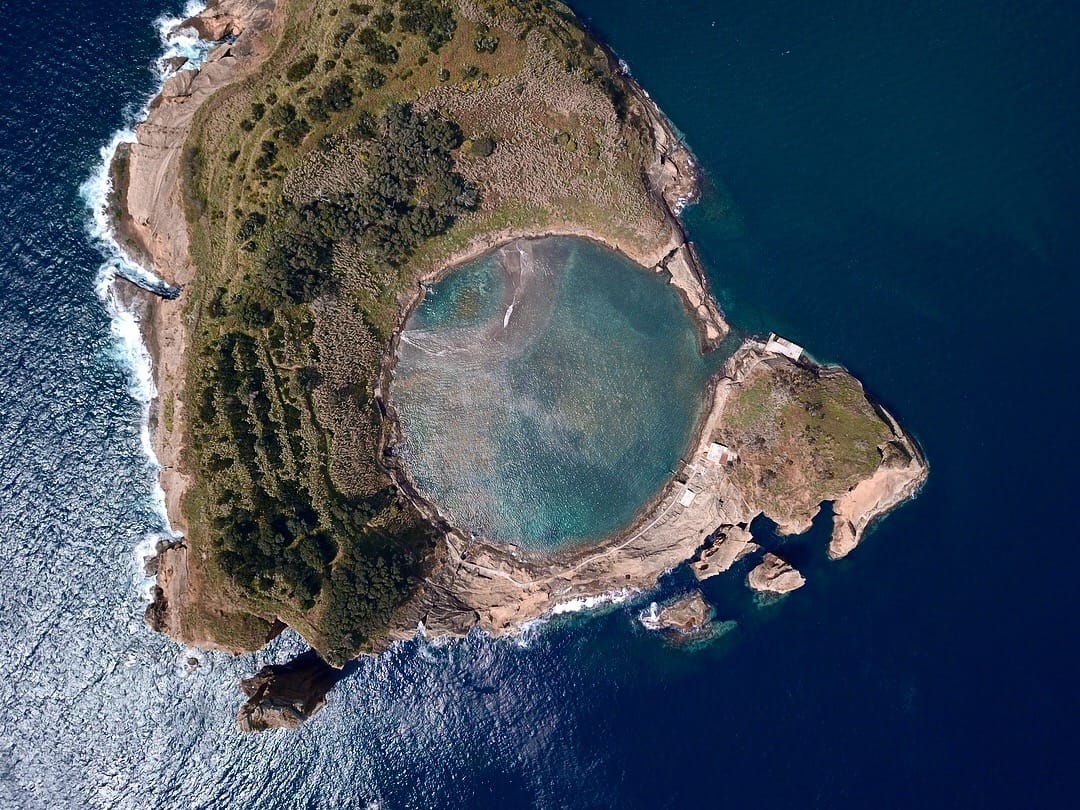
Tom de Dorlodot is a professional paraglider & paramotoring pilot, partnering with companies such as Red Bull, Volkswagen, Garmin and Patagonia. Sofia is Argentinian, born in Paraguay and the daughter of a diplomat, making her more than familiar with a lifetime of travelling. We think they're a pretty cool couple.
On the 21st June 2017, The Outdoor Journal published a story about Thomas de Dorlodot and Sofia Pineiro. Having come from a VanLife, they were taking to the sea. The plan? To find the most beautiful places on the planet to paraglide, dive and surf.
Meanwhile, they would welcome professional athletes and friends to join them along the way. Their only goal? Seek intensity. We caught up with them last week, to find out how they are getting on.
You can read the original article from last year here, or alternatively check out the Search Projects video below.
[embed]https://www.youtube.com/watch?v=IVmaIF04hO8[/embed]
TOJ: "Seek Intensity", that's the quote you left us with last year as your main objective. How did that go? What were your most 'intense' moments? Do you have one in particular you can share with us?
Tom: The year has been hectic. When we left Belgium, we didn't know it at the time, but we really had no clue about sailing! I couldn’t even hold the helm. I was not even sure that I could take the boat out of the marina. So we left Brussels with a few friends that could sail, a bit better than us, and basically it’s been a year of learning, with all the possible mistakes you could make on a sailboat. But we didn’t break anything, so that’s good.
Sofia: In the beginning, it was a good and a bad thing for us that we started with the worst conditions. With no experience, and difficult weather to navigate, we had to learn fast and adapt quickly. We developed good processes and reflexes on board. These were good lessons to learn early on.
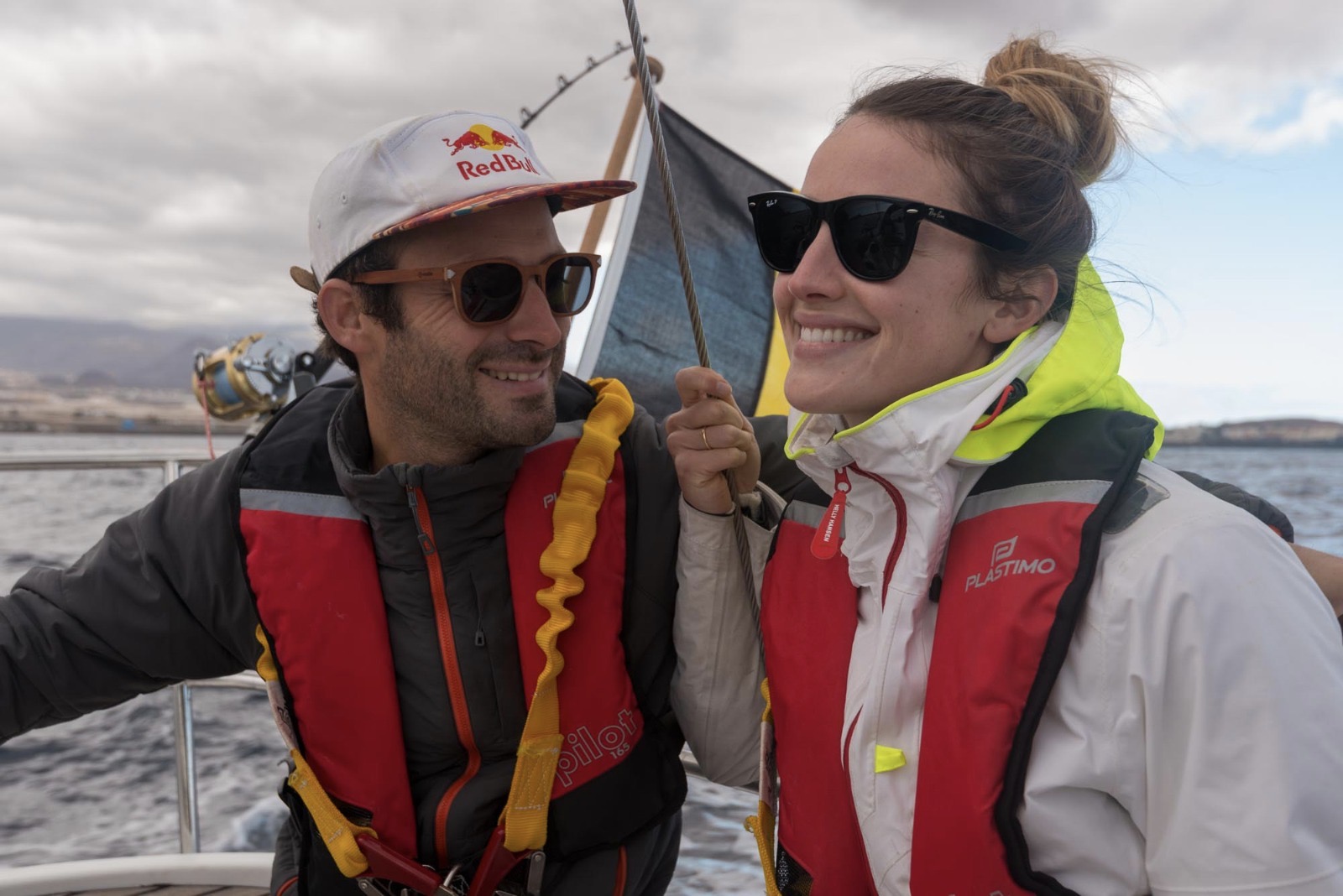
Tom: One of the best moments was arriving in the Azores. It is just an incredible place, a very wild island. I remember one moment in particular, when we woke up in the morning and were sailing towards Faial. In a very calm sea, a whale came out of the water just a few meters away from the boat and exhaled, we got so wet. The whale just came out and pshht, we took all the humidity and the water in our faces. It was really crazy, it was the first time we really saw a whale that close to the boat. And then, the next day we saw ten sperm whales, dolphins everywhere, it was just incredible. We love the Azores so much that we actually found a piece of land there in Horta with a small ruin on it; when we finish our travels, we will build a house there.
TOJ: How did this year on a boat differ from the 'van life' you were doing before? Have you adjusted? Do you have a preference between one or the other, which and why?
Sofia: The boat life, by far. There are many similarities between the two lifestyles, but not when you compare driving for 10 hours or sailing for 10 hours. When you sail you’re always outside, the air is pure, you leave no harm behind you and it’s just you in the middle of this huge ocean. I think that is quite unique.
Tom: You also don’t need gas, that's a good thing. Most of the time we have the wind in our sails, and it’s silent, you can just choose your own line in the water. It’s different when you’re on the road and you have to respect speed limits and red lights. The freedom of being able change plans in any moment is an amazing feeling. For example, we were in Dublin yesterday, and then for a moment you consider, “Why not go to England” and BOOM, you cross the sea and you go to England. You cannot replaces this feeling of freedom, knowing that the Azores were only 7 days away, which might look far, but you learn to travel at a different speed.
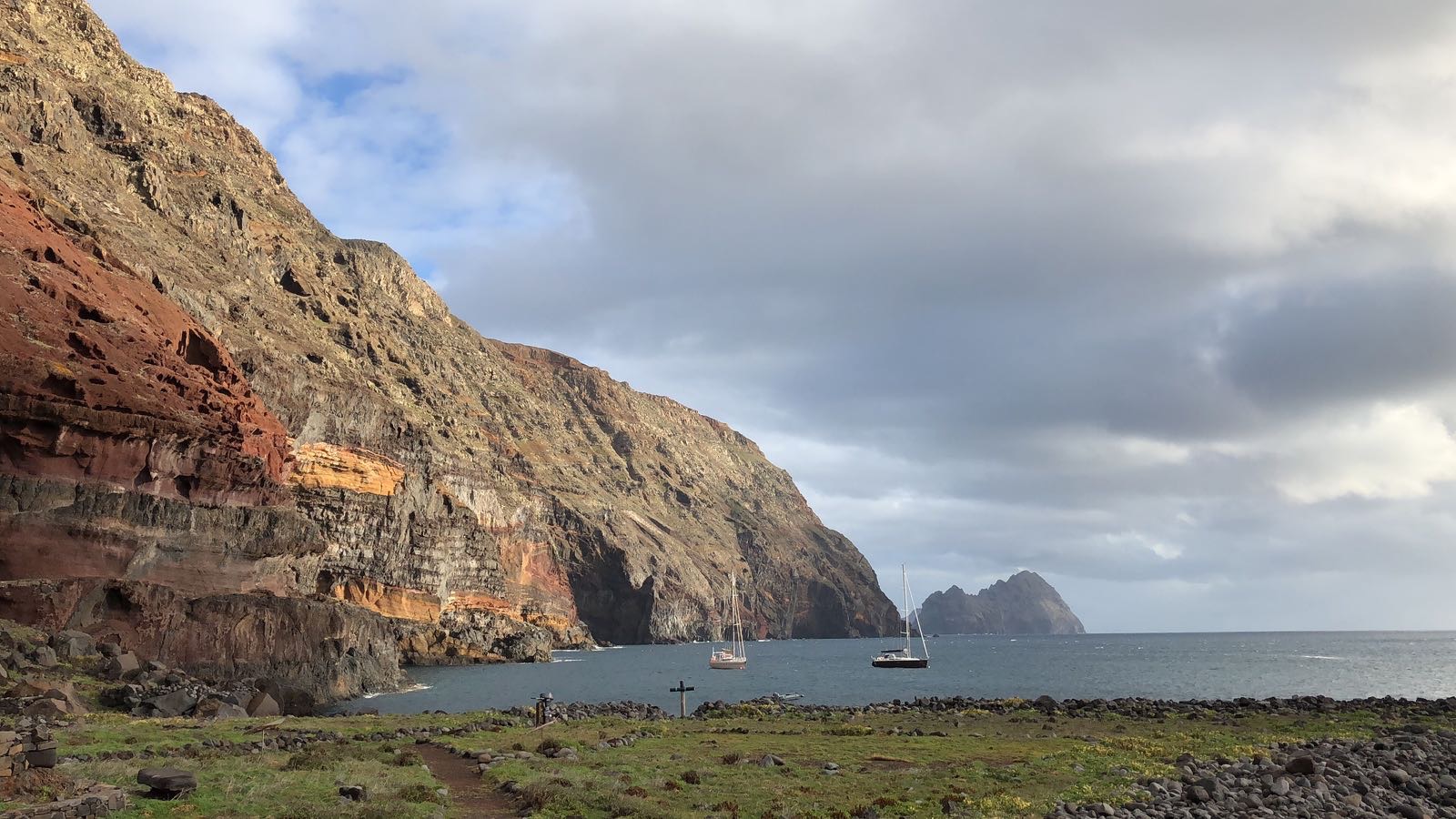
When you walk in the mountains, ski, or cycle through a country, you have the time to see things, to meet people. It’s the same with a boat, because you don’t do long distances but everyday you’re in a different place. There’s also the sporty side to it; taking care of a 12-meter sailboat when in heavy conditions can be challenging, but very exciting.
Sofia: It's common to experience strange feelings too, you reach land after a couple of days without being in a city, and you feel like an alien! You need a few hours to re-adapt and kind of act "normal” again.
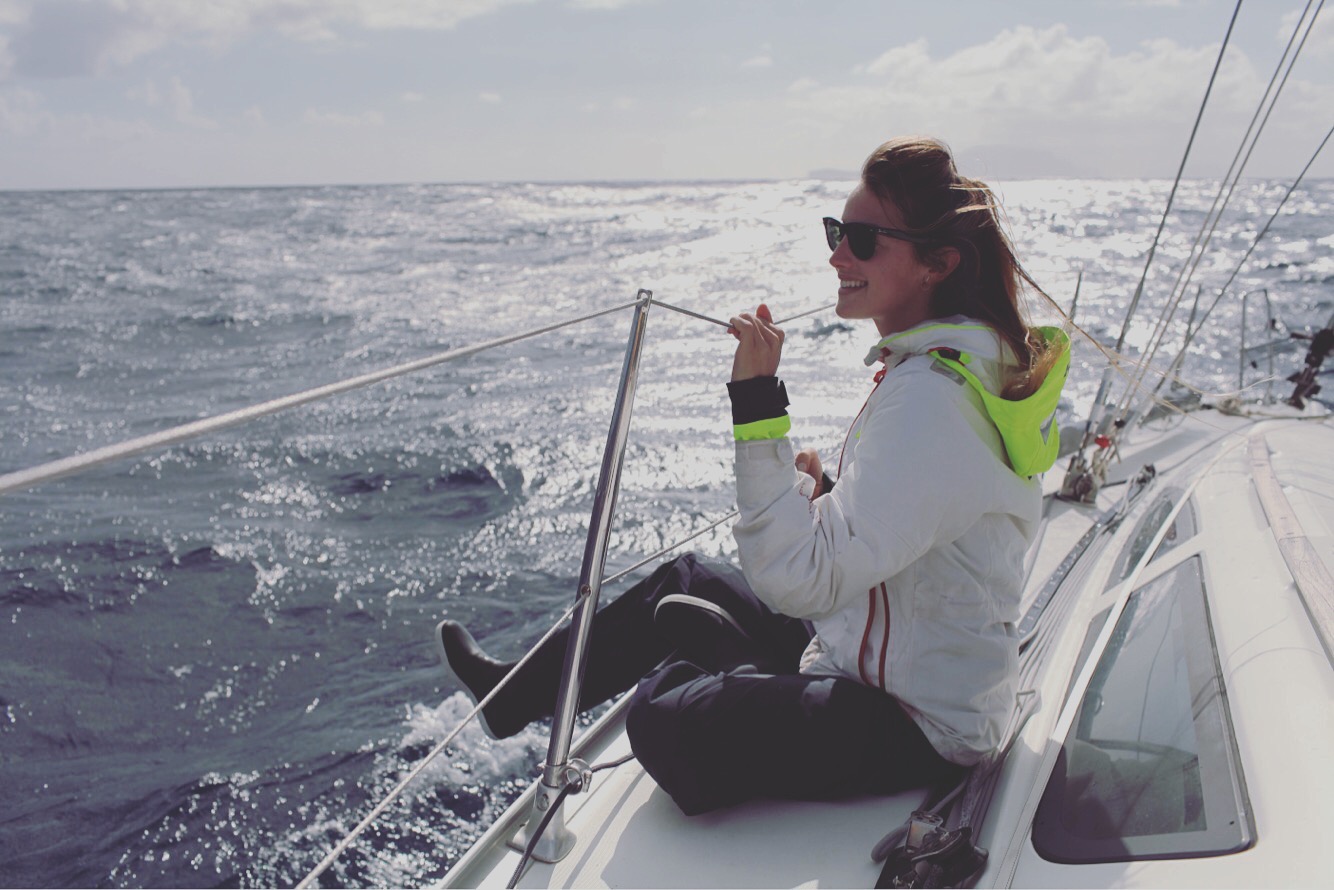
Tom: The boat is actually a very good way to disconnect. It’s a bit like high altitudes in the mountains. You leave the coast, and you’re out there by yourself. The higher in the mountains you travel, the less people you meet. We have a lot of time to read, and we don’t need a watch or clock; we eat when we’re hungry, we sleep when we’re tired. Of course, it also comes with a few downsides. We have to take care of the boat, and the pictures you see on Instagram is the “glossy part”, but also we have problems, the boat took water a few times, we broke things.
"The good thing is that when you leave land, you only think about one thing: to come back. And when you’re back, you only think about leaving again."
You always want to be on the move, and it’s great because when you come back to the land you get a good shower again, you appreciate the simple things. The restaurants, nice food, and sitting on a bench that doesn’t move around.
TOJ: How is the boat? and let’s talk about the SEARCH project.
Tom: The boat is doing really well. We expected to have a few problems, because it was out of the water for 7 years and we worked for 8 months to fix it. Now it’s in super good shape, everything is fine so we think it’s the perfect tool for moving efficiently from one place to the other.
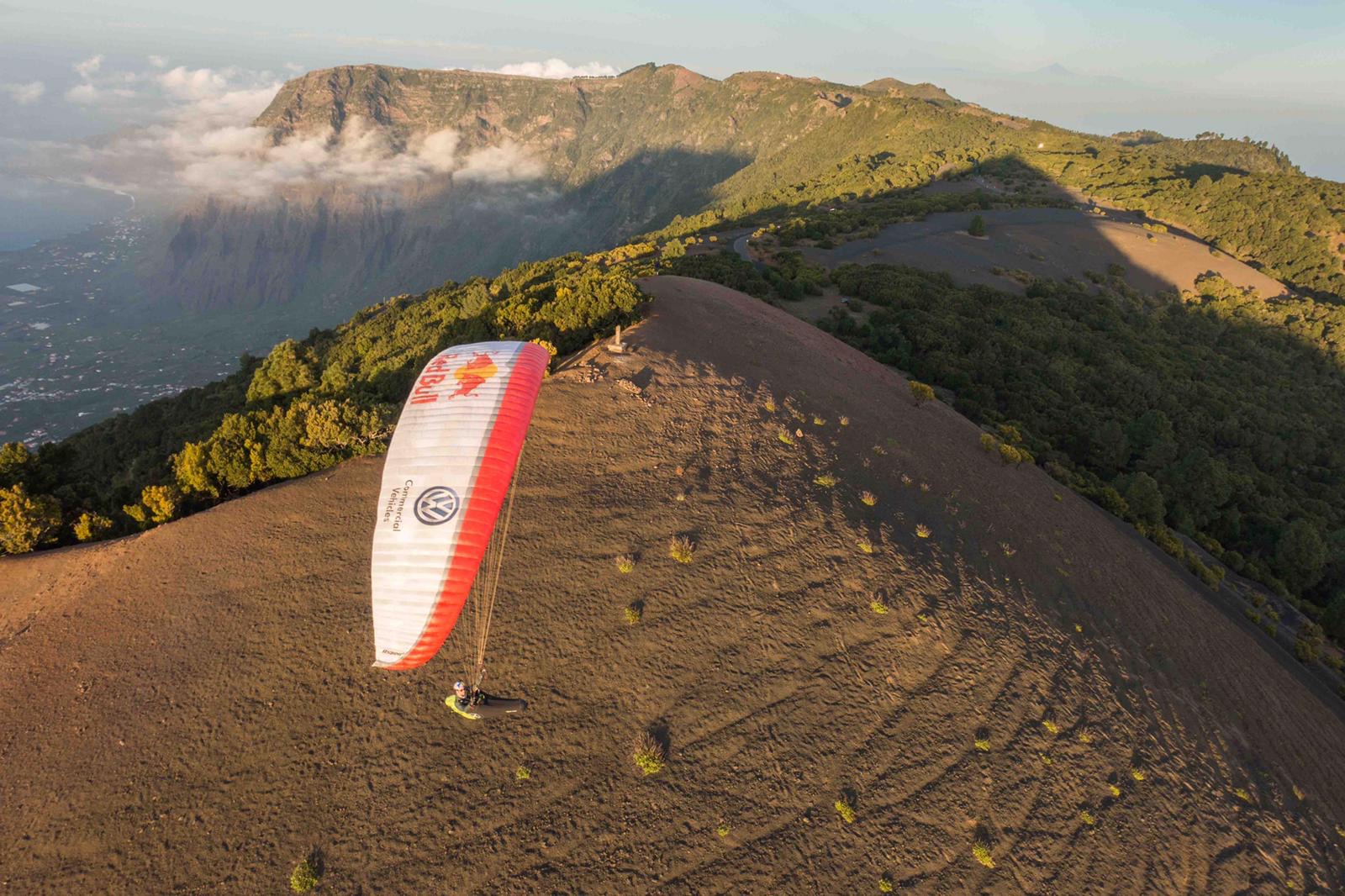
Regarding the SEARCH project, it’s a very large search. The goal is to try to find the best places in the world to fly, we’ve encountered many places and made a good start. From the moment we landed in Gran Canaria (Canary Islands) and talked to the local pilots, we couldn't stop grinning.
"One of the guys said that no one had crossed the island from one side to the other, they thought it was impossible. 2 days later, we did it."
For us, it’s pretty cool to be able to arrive by boat, with the gliders, take them out and make a flight that local people have been dreaming about doing for years. It was a great moment. However, we’re not only looking for flying places, we’re also looking to continue to learn and to get to know new people.
Sofia: Gliding is taking a new dimension, there’s the sport side of it, but also the discovery when you find a new place, with a new culture. We also have the mission to not only show the beauty of our planet to the world. Having seen the bad things about the environment and pollution, we want to convey these findings to others. Try to expand the community awareness, for example by having a group of scientists coming onboard.
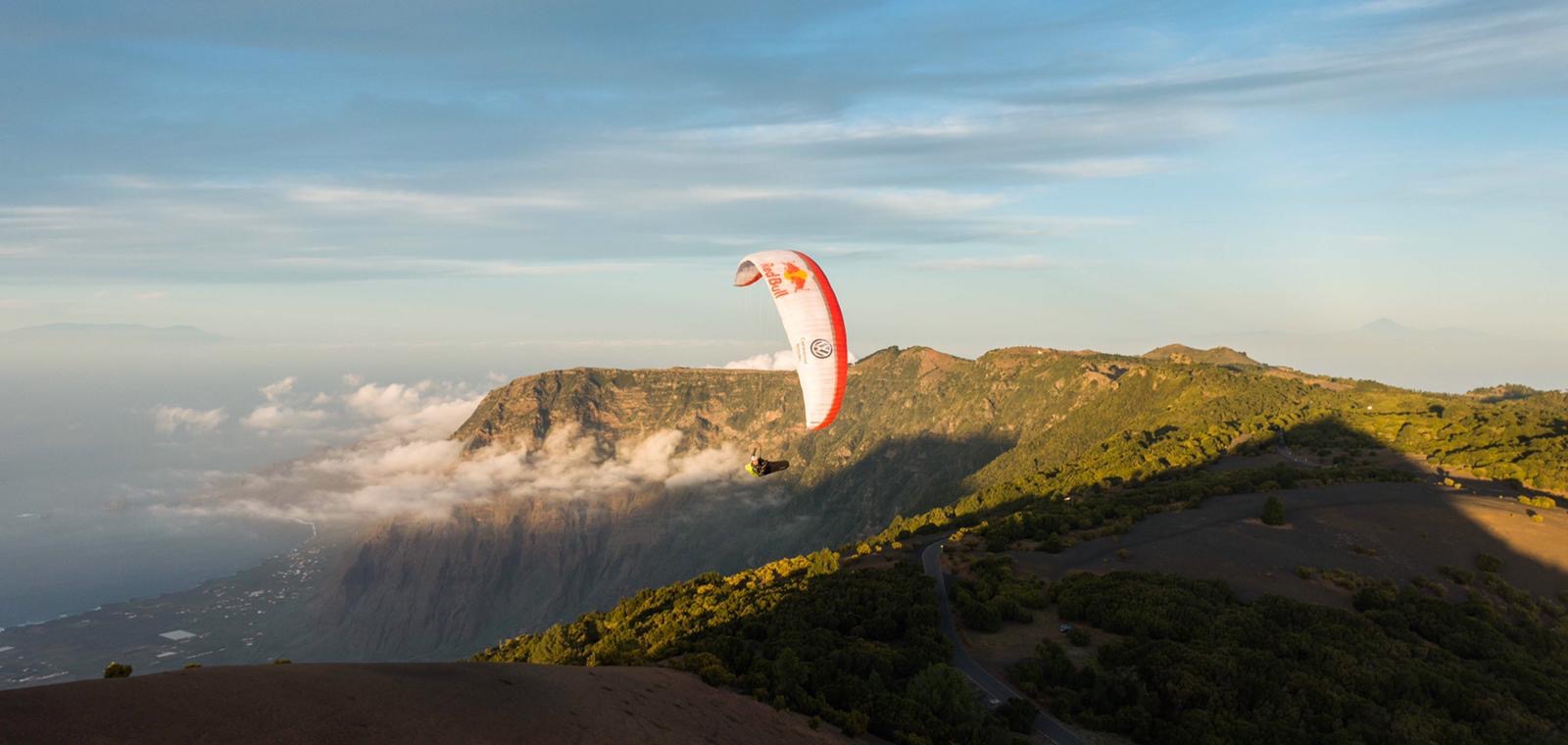
Tom: At the end of the day, it’s all about sharing. We are happy to invite people onboard, we had Simon Charrière, who is a professional skier, sponsored by Patagonia, recently. We had Gaetan Doligez who is an alpinist. These guys come onboard and they share their stories, and then they touch their own community. We now feel that we have more responsibility to share what we see, not only the dreamy part, but also what we think is wrong. That’s the direction of our focus for the next month.
TOJ: With regards to the environment, climate change, etc, you've been in contact with it every day, from flying to diving, and everything in between. Did you have any moments where you said "wow, the climate is really changing"
Tom: One of our main concerns is plastic in the ocean. Unlike the CO2 emissions, this is a kind of pollution that you can see, that you can witness. The other day, whilst we were in the Azores, we saw seven big sea turtles. When you get close to them they get scared and usually go under water, but one was chewing a piece of white plastic, because it looked like jellyfish. She wouldn’t let it go and looked a bit sick. We don’t really realise how bad it is for the environment and we’ve been throwing plastic in the ocean for many years now. It’s difficult to acknowledge, because it’s difficult to count all the fish in the water; but when we speak with the locals and fishermen that have been sailing for 40 years, they all reach the same conclusion: we’ve reached a limit. We've gone too far and we now need to realise it.
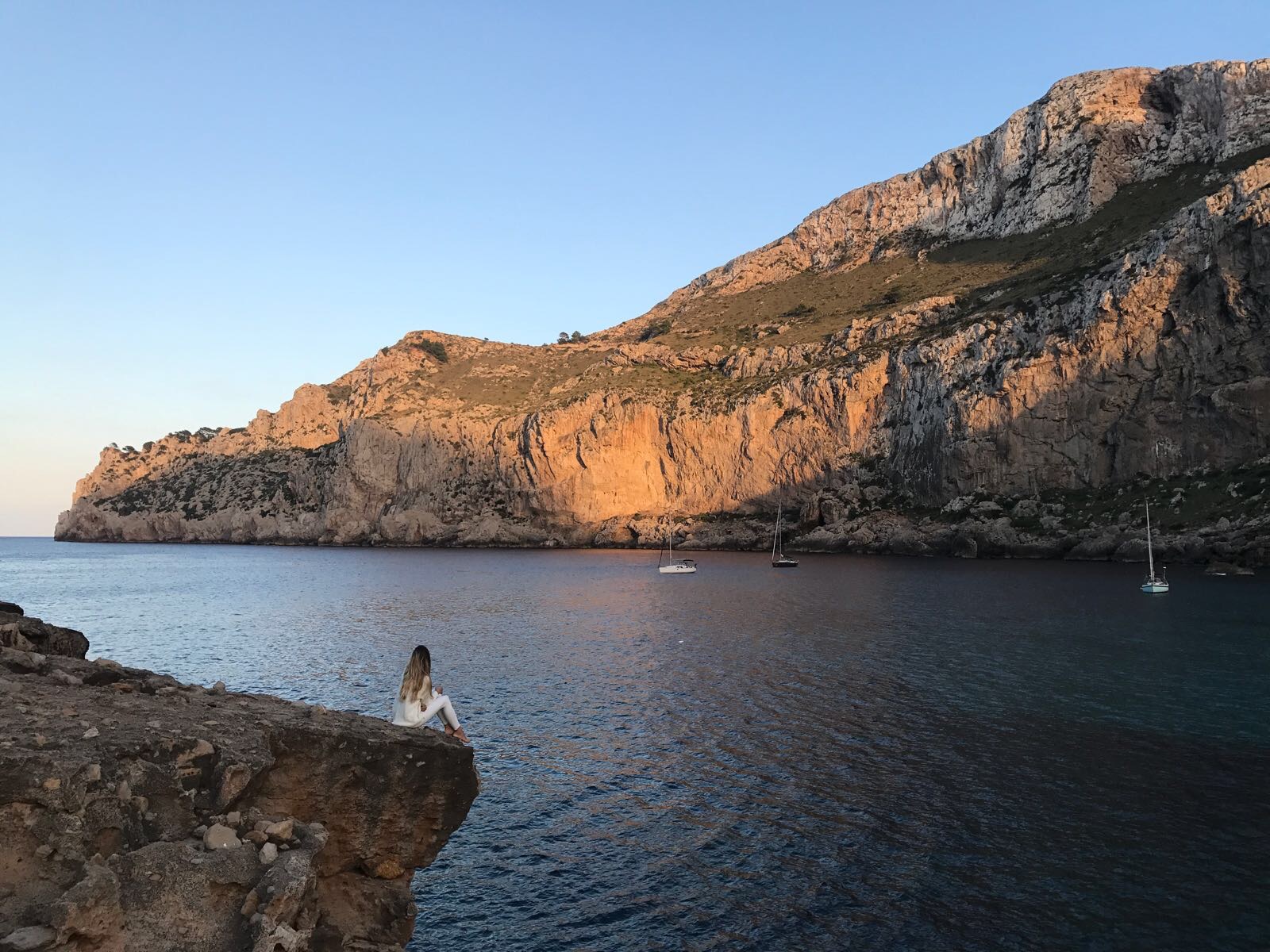
As a paraglider I’m super concerned about the weather, I have to look for stability and good weather to fly. When you speak with the local pilots, for example in the Canary Islands, where they started flying over 25 years ago, they say “we used to have better days, more stable conditions”. Everyone tends to say that everything is more extreme now. It moves you. When you’re connected to nature every day, it’s different then when you’re living in a city.
"You eat your sandwich wrapped in plastic and it looks normal, but if you live on the sea and you see a piece of plastic every 40 meters, you realise there is something wrong."
Sofia: Now we have an opportunity to change habits. For example, when we go to the supermarket, we can only take the vegetable that are not wrapped in plastic. Our amount of waste has beed reduced drastically.
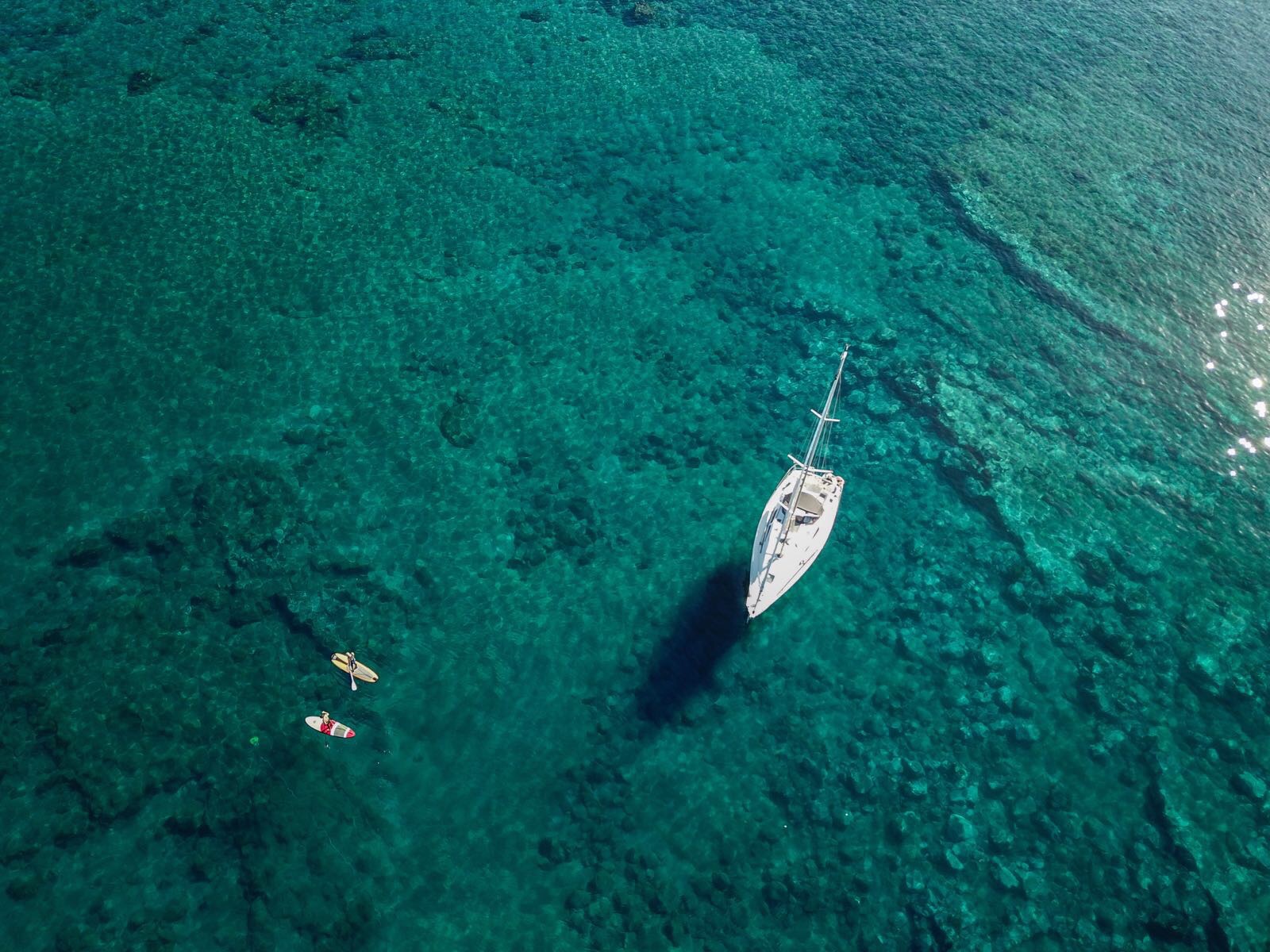
Tom: I wish we could catch more fish, but sometimes it feels like the sea is empty. We didn't manage to catch a single fish from the Azores to here (Ireland). We have good techniques, but we caught nothing. Then you come to Ireland, and you see massive boats dragging the ocean and taking tons of fish out of the water each day. We are really trying to make an effort on this side and I think it’s going to get better, but sometimes it’s impossible: you go to the supermarket and it’s plastic everywhere, everything is wrapped into plastic. I think now the consumer has the power to change this, by not buying things wrapped into plastic, and this can make a difference.
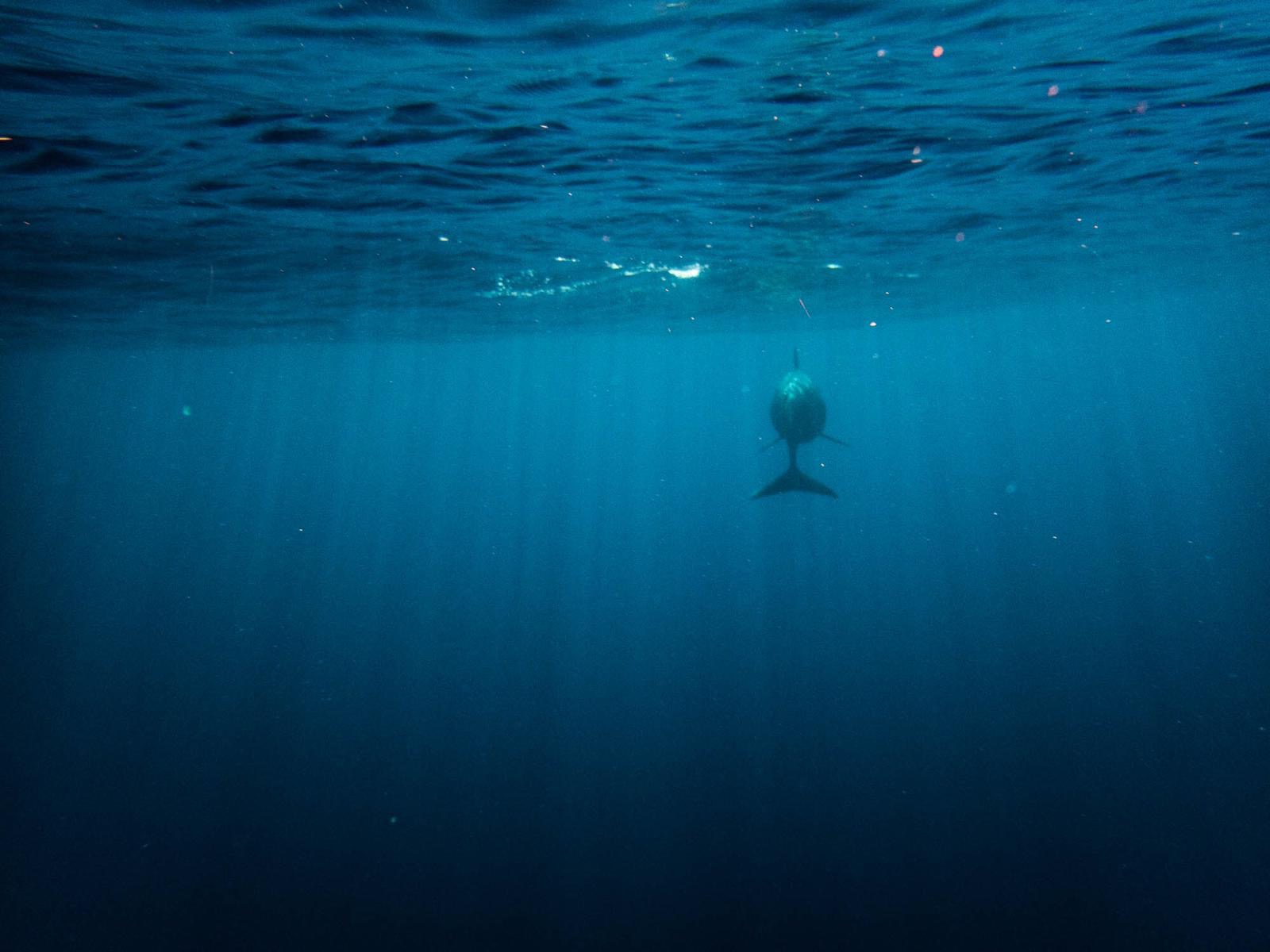
TOJ: You've embraced "a life with less" philosophy with regards to materialism, what have you found is really indispensable? What did you think was going to be essential, but actually wasn't?
Tom: I think that nothing is essential at the end of the day. You need good food, healthy food, you need to catch a fish now and then.
"Fashion:"we are not into it, we try to just work with responsible brands..."
We are in a little bubble, for sure, but we’re not trying to live outside society, we are just on another page now. This kind of trip changes you, for sure.
TOJ: Do you receive clothing throughout the year, through your sponsors, or you just have a set of clothes from a year ago that you re-use endlessly?
Tom: We work with Patagonia and they have a “worn-wear” philosophy. You have to use your clothing until they are completely destroyed, and even then we can still fix it. We like it when your jacket looks used, and they want you to use it until the very end. Now we have a complete set, and I don’t think we will need a new one from the new collection. If we do, our old set of clothes will go to Pakistan, to the high-altitude porters that will need it more than us. We are happy to work with Patagonia who is trying to be eco-responsible in a way.
[embed]https://www.youtube.com/watch?v=hTZy79e1OAk[/embed]
TOJ: One last thing about last year: scariest moment?
Tom: At the beginning when we left the Baleares and we went to Gibraltar, we got stuck in a thunderstorm in the middle of the sea. We took the sails out, and for 2 hours we were fighting in really heavy conditions, massive waves, with thunder all around us. At every lightning strike you think "ok, the next one is for me". If it strikes you or your boat, you sink pretty fast. That was super scary. But we stayed focused, we stayed calm.
"It’s a very big lesson of humility, being on the ocean out there, you feel like you’re nothing. It’s impressive."
TOJ:What’s next?
Tom: We are going to Scotland next week. From Scotland, further North, to the Shetland Island, and from there we cross to Norway. We think we will be there end of July, and we will spend a month / a month and a half in Norway; and then back down to Belgium. I have to go to Turkey for another expedition, but with 4x4s this time, with the SEARCH project team. We have 2 Amaroks (VW pick up) because Horacio is also sponsored by VW now, and with the roof-tents, a cameraman plus the photographer (John Stapels) we will do a kind of “old school” SEARCH project. Dirt bags, small budget, searching for places to fly. I think Turkey has lots of potential. Then we take the boat back to the Canary Islands, and from there we cross the Atlantic.
You can follow Search Projects on Twitter, Facebook and Instagram.
You can find Tom on Twitter, Facebook and Instagram.
You can find Sofia on Instagram.
Find your own sustainable paragliding or sailing trip on OutdoorVoyage.com


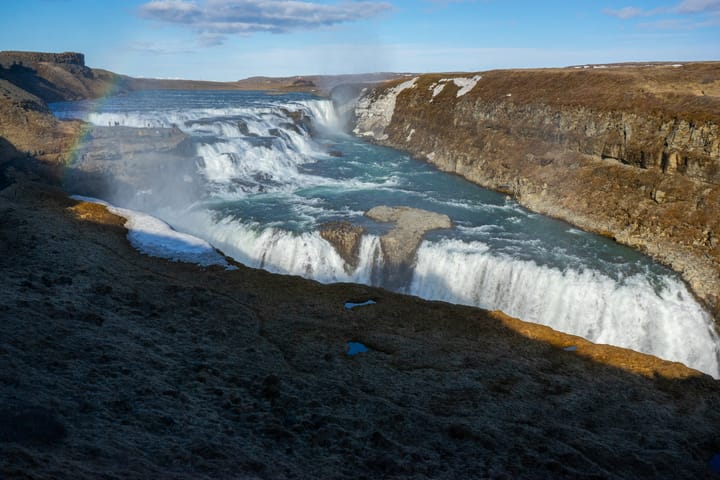
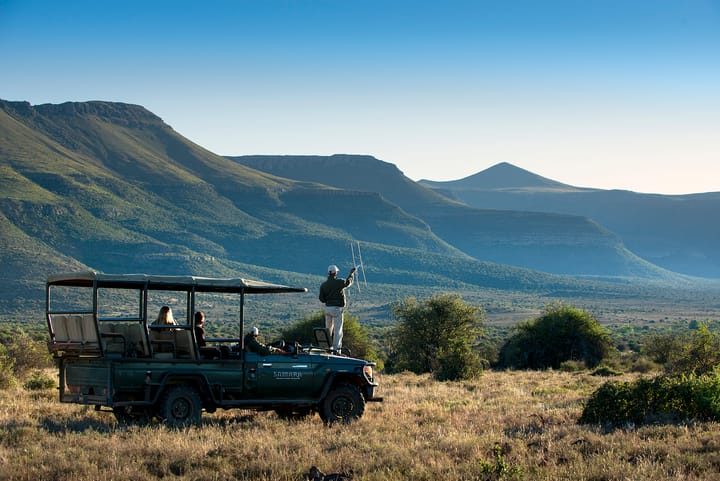
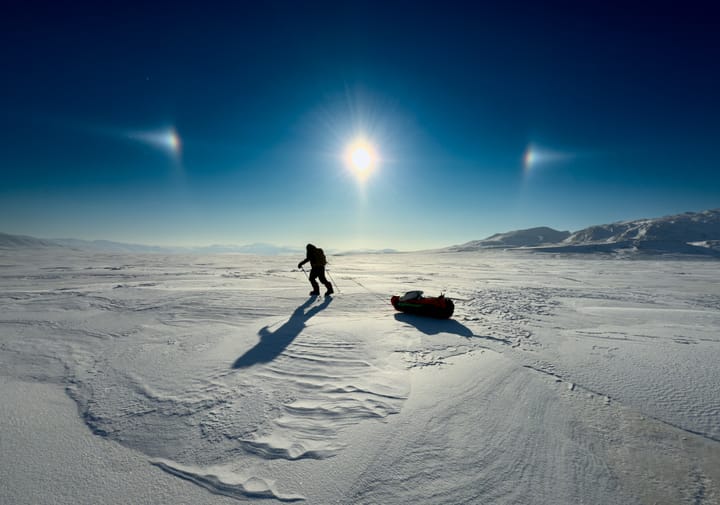
Comments ()